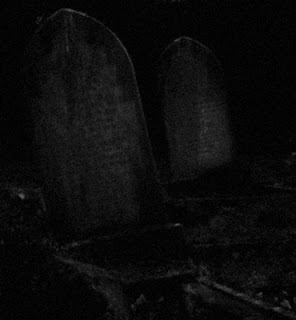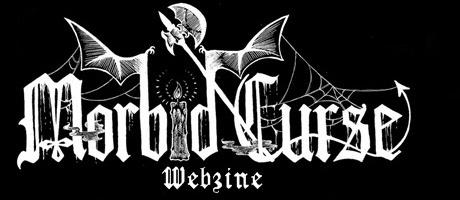
|

|
On the Glorification of the Dead
by Noctir (Mar. 2016)
 It is often the case that, once someone is deceased, they are put
upon a pedestal that is far higher than they ever deserved in life, especially if they died under some sort of tragic circumstances.
Suddenly, they were the “greatest” this or the “best” that. At times, all of this posthumous praise
ends up amassing a larger following for the person than when they were alive and active. People such as Jimi Hendrix, Janis
Joplin, Jim Morrison and Sid Vicious all became pop culture icons as a result of overdosing on drugs and dying quite young.
In a sense, they have become timeless and immortal. As well, one doesn't have to look very hard, even two decades after his
death, to see Kurt Cobain's face continue to appear regularly in the media. Of course, this is not something limited only
to music; figures such as Abraham Lincoln, John F. Kennedy, James Dean and Marylin Monroe have all been somewhat deified since
passing on. There is this strange tendency to over-glorify the dead, no matter how mediocre they might have been. That is
not to say that they deserve no praise whatsoever, but it is clearly a case of their virtues being exaggerated after death.
Unfortunately, the same mentality exists within the world of metal as well.
A somewhat recent example of this is Dimebag Darrell, of Pantera fame.
While he may have been a nice guy and a capable guitarist for the style of music that he played, he certainly was not the
“greatest metal guitarist of all time” as fans and media alike would have you believe. Whatever he might have
been capable of, the recordings made during his lifetime give no evidence of him being any better than hundreds of other guitarists.
In fact, his legend is mostly based on the latter Pantera albums that, arguably, display even less skill than the likes of
I am the Night or Power Metal. His most famous records are filled with simplistic groove riffs. Simply put,
he happened to be part of a popular band and later died a tragic death, thus he has been worshiped ever since.
Cliff Burton is another guy that has somehow become idolized much
more after death than he would have been, otherwise. From 1982 until dying in an auto accident in 1986, he was the bassist
for Metallica. During this short span, he was a part of their first three studio albums and an integral part of the band as
they toured and built up their following. There is no doubt that he was talented and would not deserve to be forgotten. But
again, there is a difference between being respected and a person being raised up to godlike status. Ever since Metallica
sold out with the Black Album, and then committed the atrocities known as Load and Reload, fans have sworn up
and down that “if only Cliff had lived, they would still be true metal”, etc. The truth seems to be the reverse,
that he was probably the least metal member of the band and was the one bringing in so many outside influences and likely
resulted in the weak, fluff parts of Master of Puppets, for example. Members of the band have even stated in interviews
that, had Cliff still been around, the band would have likely released something like Load much earlier than they did.
Furthermore, bass is the least important element in metal and should only ever play a supporting role. Even the “greatest
bass player to ever live” is easily replaceable, as evidenced by the fact that Metallica is currently on bassist #4.
Burton was good at what he did, surely, but the only reason he's become some sort of 'legend of metal' is because he died
young.
Someone else worth mentioning in this context would have to be Chuck
Schuldiner. For me, Scream Bloody Gore and Leprosy are absolute classics of death metal and epitomize the genre,
perfectly. For these records, as well as the various demos beforehand, Chuck deserves credit and respect. As the band progressed,
the music was increasingly watered-down and it was clear that he wanted to be doing something else. One of the things regarding
his relatively early death was that all of his shortcomings have been washed away. That's yet another symptom of this glorification
of the dead, their virtues are extolled beyond all compare and their faults are seemingly forgotten. Regarding “Evil
Chuck”, the guy certainly wimped out over time, not just musically, but in interviews as well. He was one of many musicians
that felt the need to make excuses for the lyrical content and aesthetics of his albums, when the proper reply would have
been to tell them to fuck off. The streamlining of the Death logo went along with his softening attitude, losing the reaper
and inverted cross and dripping blood as the music itself lost any and all testicular fortitude. There's an interview with
Pestilence from 1990 (available on youtube), in which they discuss a gig with Death, where Schuldiner stopped playing and
left the stage after just a couple songs because the crowd was too wild for him. As Martin van Drunen said, “why is
such a person playing this kind of music?” Then there is the matter of the European tour where he backed out at the
last minute, leaving the other members to have to go without him in order to fulfill financial obligations. There are stories
of him canceling shows without explanation, treating the crew poorly and having a bad attitude that caused members to often
leave as quickly as they joined. There are two sides to every story, and none of this is said to demonize the man at all,
but the point is that no one is perfect. Dying at a young age does not absolve someone of their flaws and is no reason to
treat them as a god.
Even worse is when the deceased are worthy of praise and are then
treated like 'cult objects' and fetishized by those that oftentimes don't appreciate them for the right reasons at all. The
legendary Mayhem vocalist, Dead, is an example of this. Unlike some of the others mentioned here, he is rarely overpraised
for his musical contributions. His voice, lyrics, aesthetics and live performances have often taken a back seat to his depressive
nature. In this case, the dark lyrics, cutting on stage and suicide are all combined to create some tragic figure for “depressed”
teens to identify with. While living in Sweden, I knew a girl that spoke as if she had actually known him. She would talk
of him and say how she missed him and how it was sad that he had passed away. Nevermind the fact that she was an infant at
the time of his death, as well as only being aware of his existence for about five years. Girls like this (and it's always
girls, as far as I've seen) like to fantasize that if he was alive (and presumably still 22 years old) that they would be
the best of friends, just because they imagine themselves to be suffering from depression as well. For a lot of people, their
idea of depression is really just boredom or dissatisfaction. Being “depressed” has become a trend for many, when
a good deal of them have no true concept of real suffering. So, many of these girls (as well as a few that are genuinely ill)
have this idealized view of someone they know very little about, developing personal feelings based on the mythology of this
character, along with the scraps of real information that are available. Euronymous, himself, began the process of turning
Dead into a cult object, from the moment that he found the corpse. Everything from taking photos of the body to collecting
skull fragments to send to others, then on to the outrageous claims made in interviews afterward:
“As for Dead, he hated this planet and all living creatures
on it, the only thing which kept him here was his love for the ancient death/black metal lifestyle with face paint, spikes,
leather, black clothes, Satanism and brutality. Today when all the so-called 'death' metal bands are wearing white clothes,
jogging suits, basketball shoes, bermuda shorts, and have society lyrics (SPIT!), he thought that everything he lived for
was destroyed and saw no longer any reason to live. The trend people killed him and we have declared WAR.”
The difference here is that Euronymous was mythologizing the persona
of Dead, not the Swedish kid Pelle Ohlin. Of course, it's likely untrue that the reasons Euronymous cited had anything to
do with his suicide. While using a bandmate's death to promote your music is certainly questionable, at least he actually
knew him for some years and it was still done in a somewhat 'professional' manner; i.e. related to the band, in general. Dead
was neither the first nor the last to be glorified after death, but the way these girls go about it is something else entirely.
It is almost as if they've made an imaginary friend for themselves, the way they project their thoughts and feelings onto
their idealized version of who Pelle was, having nothing at all to do with his music. In fact, they are frequently more interested
in childhood photographs of him, or those in which he looked normal and without corpsepaint. All of this because he was a
depressed metal guy that killed himself, and they think that they're kindred spirits because they listen to some modern poser
bands and like to pretend to be depressed. They would rather blog online about the inner workings of his brain, rather than
to listen to Mayhem's Out from the Dark rehearsal. If he was alive today, most of them wouldn't care and wouldn't fantasize
about him any more than any other old musicians from those days. At least, I haven't seen this sort of obsessive behaviour
directed toward LG Petrov or Nocturno Culto, for example. It's only because he killed himself, in such dramatic fashion, that
people care and think they knew him.
There have been plenty of times when a person's “genius”
went unnoticed until after their death. It's a strange thing about people, that they really don't care all that much for you
until it's too late to matter. Nevertheless, death is not reason enough for a mediocre person to suddenly become great, or
for a really good person to become a superhero. There is definitely nothing wrong with remembering those who have died and
honouring their work, whether they were musicians, painters, writers, scientists, philosophers, etc. However, dying at an
early age does not automatically make that person the “greatest ____ to ever exist”. Idolizing humans, dead or
alive, is usually not a good thing.
|

|

|


